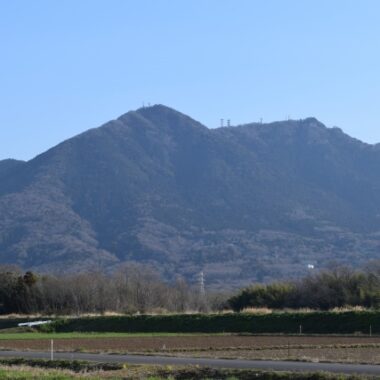One of the issues that pose a challenge to the plaintiff’s action in pollution litigation is the difficulty of demonstration. One of the reasons for this is the difficulty in obtaining time-series environmental measurement data to prove that a specific area was contaminated with pollution-causing substances to the extent that pollution-causing diseases could occur at a specific time. Time-series data on the amount of polluting substances in the air in the case of air pollution, the amount of polluting substances in the seawater (lake water) in the case of water pollution, or the amount of toxic substances in fish and shellfish inhabited in the sea (water) can be important evidence that inhabitants living in a specific place at a specific time have been exposed to polluting substances to the extent that they can cause polluting diseases.
However, it can be said that it is very difficult for individuals and private organizations to conduct continuous surveys of environmental pollution conditions, such as surveys of fixed points, and research on pollution based on these surveys, due to human, financial, and technical aspects, as well as restrictions on survey authority, etc. Under such circumstances, local residents are expected to conduct surveys and research on the actual conditions of pollution by the national and local governments, and from the viewpoint of protecting the lives and health of residents from pollution, there are many people who believe that national and local governments are obliged to conduct surveys on the actual conditions of pollution and research based on the surveys. It should be noted that, in this sentence, the term “State” means mainly an administrative organ excluding a court from a national organ, since it analyzes the state’s assertion in court and the court’s judgment on it.
Then, if the State and local governments fail to conduct investigations and research on pollution against such expectations, is it considered illegal under the State Compensation Act?
In cases where concrete legislation has been enacted that requires the State and local governments to investigate and study the pollution uniquely, it may be illegal under the State Compensation Act if the State and local governments fail to conduct the investigation and research. The question, however, is whether the administrative omission of investigation and research on pollution can be regarded as illegal under the law of national compensation if the investigation and research on pollution can be legally carried out by other laws, although the legislation does not require investigation and research on pollution to be uniquely enacted.
In order to consider this issue, it is useful to consider how to establish a framework for determining the illegality of a tort, primarily the omission of research and research, which is similar to the illegality of a general tort.
In the Supreme Court’s decision of November 24, 1989 on the determination of the illegality of omissions,
Unexercise of regulatory authority by a public officer of the State or a public entity is deemed to be significantly unreasonable under specific circumstances in light of the purpose, purpose and nature of the laws and regulations that prescribe such authority, it is reasonable to interpret it as being illegal for the purposes of Article 1, para.1 of the State Compensation Act in relation to a person who has been damaged by the non-exercise.
It indicates.
The Supreme Court of Minamata Disease Kansai Supreme Court ruling on October 15, 2004 cited the above-mentioned part of the Supreme Court ruling on the Chloroquin case.
Since January 1960, the failure to exercise the above-mentioned regulatory authority under the Water Quality 2 Law is extremely unreasonable in light of the spirit, purpose, and nature of the authority of the Water Quality 2 Law, which stipulates the above-mentioned regulatory authority, and is illegal for the purposes of Article 1, Paragraph 1 of the National Liability Law.
In relation to Kumamoto Prefecture,
The ruling of the court of the second instance that the appellant prefecture was liable for damages under Article 1, Paragraph 1 of the National Compensation Law because it was obliged to exercise the regulatory authority based on Article 32 of the Prefectural Fisheries Coordination Regulations by the end of December 1959 and that it was not reasonable to exercise this authority since January 1960 can be accepted if the ruling is interpreted to have the direct purpose of protecting the reproduction, etc. of aquatic animals and plants, but to have the ultimate purpose of maintaining the health, etc. of those who ingest it.
It indicates.
According to the judgment of the Supreme Court of the Chlorokine Case and the Supreme Court of the Kansai Procedure for Minamata Disease, the illegality of the State Compensation Law may also be recognized when the omission of public officials of the State and local governments does not cause public officials of the State or local governments to commit an act to protect the interests of the Protection Law under the Substantial Law and the omission of public officials of the State or local governments is recognized as extremely unreasonable.
Regarding the provisions on the grounds for the following omission, in recent years, patients with Minamata disease have been considered to be food poisoned patients who have ingested fish and shellfish contaminated with hazardous substances. The Health Center Director has failed to conduct investigations and reports based on the Food Sanitation Law, the Kumamoto Prefectural Governor and the Kagoshima Prefectural Governor have failed to make similar reports, and the Minister of Health, Labour and Welfare has not requested the Governors of each prefecture to conduct investigations and reports based on the same law. Therefore, there are lawsuits that require legal investigations, etc. of Minamata disease based on the Food Sanitation Law, as well as requests for claims, etc. based on the National Compensation Law (hereinafter referred to as the “Food Sanitation Law Case”). This lawsuit was filed as a plaintiff by a doctor who notified the public health center that the patient with Minamata disease had been diagnosed. The plaintiff was pending in the Tokyo District Court in the first instance in connection with the request for the National Compensation Act,
In order to understand the overall picture of the damage caused by Minamata disease, it is indispensable to investigate the actual conditions of the health damage caused by the unintended fire coastal inhabitants… These situations are markedly contrary to the intent and purpose of the Food Sanitation Law, which obliges the administration to conduct investigations and reports, and to take measures to prevent the spread of damage, and through these measures, to protect the health of the people, especially those who suffer from food poisoning, to obtain prompt and appropriate investigations and legal interests for patient examination. It should be concluded that there is an urgent need to carry out the respective acts in order to excavate an enormous number of potential patients who have not yet been submitted or approved and to carry out appropriate patient confirmation.”It is clear from the provisions of Article 58 of the Food Sanitation Law that investigations and reports should be made, and the fact that investigations and reports under Article 60 of the Food Sanitation Law are not required is a deviation from the scope of discretionary authority or abuse of such investigations and reports….
I claim. In response,
The purpose of the investigation and report pursuant to Article 58 of the Food Sanitation Act and the request for investigation and report pursuant to Article 60 of the same Act is solely to protect the public interest, and it does not directly reveal the actual situation of food poisoning or the correct picture of the disease in relation to individual citizens, nor does it recognize food poisoning patients, etc. as food poisoning patients. Therefore, the interests claimed by the plaintiff in relation to the request for national compensation are not the interests protected by Articles 58 and 60 of the same Act. Then, the Health Center Director and Prefectural Governors, etc., who are the principal of the investigation and report under Article 58 of the Food Sanitation Act, and the Minister of Health, Labour and Welfare, who are the principal of the request for the investigation and report under Article 60 of the same Act, cannot be said to bear specific legal obligations in terms of their duties to conduct each of these acts in relation to the plaintiff, and therefore it is unlawful for the application of Article 1, Paragraph 1 of the National Compensation Act to not conduct each of these acts.
I argued against it. In this regard, the Tokyo District Court decided on December 7, 2016,
Article 1, Paragraph 1 of the National Compensation Law provides that the State or a public entity shall be liable for damages to the citizens in violation of the legal obligations imposed on each citizen by a public official in the exercise of the public authority of the State or a public entity (see Supreme Court (o) No. 1079, December 16, 2015, Grand Bench Judgment, Civil Society, Vol. 69, No. 8, pp. 2427, etc.). The term “illegal” in the same paragraph shall be construed to be deemed to be deemed to be in the case of violating the obligations of a public official on the assumption that the public official has any legal obligation in the course of duty against a person who claims that the public official has suffered damages due to the act. However, as mentioned in the above 2, the provisions of Article 58 and Article 60 of the Food Sanitation Act, which are the basis of the Acts, are not to be construed as including the intention of protecting the individual interests of the doctor who submitted the notification pursuant to the provisions of Article 58, Paragraph 1 of the said Act, nor are they related to the violation of the rights or legal status of the doctor who submitted the notification as a result of the request for investigation, report, investigation, and report pursuant to these provisions, or the failure to do so, so it is reasonable to construe that the administrative agencies of the defendants who have the authority to perform the Acts are not obligated to take into consideration the protection of the plaintiff’s rights or individual interests in the exercise or non-exercise of the authority. Therefore, it cannot be said that the failure of each administrative agency of the defendants who have the authority to perform the Acts violates the legal obligations in the duties imposed on the plaintiff, and it cannot be said that the failure to perform the Acts is illegal for the purposes of Article 1, Paragraph 1 of the State Compensation Act in relation to the plaintiff.
It indicates.
In the appeal trial pending at the Tokyo High Court, the Tokyo High Court decided on July 12, 2017,
The court of the second instance has concluded that the provisions of Article 58 and Article 60 of the Food Sanitation Act cannot be construed to protect the individual interests of the physician who has submitted the notification pursuant to the provisions of Article 58, Paragraph 1 of the same Act, and the appellant’s assertion cannot be adopted.
We support the judgment of the Tokyo District Court.
Regarding the illegality of an administrative organ’s omission, the State may deny the illegality by making an assertion of “reflective interest” in a claim for state compensation law against which the State has instituted an illegal act of omission. In recent Minamata disease lawsuits,
The illegality set forth in Article 1, Paragraph 1 of the National Compensation Act refers to the violation of the duties of the public officials directed to the individual citizens. In order for the omission of the public officials to be illegal in terms of national compensation in relation to the individual citizens, it is necessary that the concrete interests claimed by the citizens are protected under the administrative laws and regulations that provide the basis for their authority, i.e., the interests of the citizens received through the exercise of the authority are the interests protected under the National Compensation Act (not the reflective interests). And if the purpose of the governmental laws and regulations is solely to protect the public interest and other legal interests, even if it may benefit from the exercise of such authority, it is merely a reflective (reflective) benefit and not a legally protected benefit. If there is no infringement of the interests protected under this Act, it is impossible to recognize the code of conduct that should protect the interests pertaining to the claim in relation to a specific citizen who asserts that he/she has suffered damages due to the omission of a public officer. Therefore, the public officer does not bear the obligation (duty of conduct) to exercise the said authority as a legal obligation under his/her duty to an individual citizen, and there is no illegality under the State Compensation Act that is a violation of the obligation under his/her duty.
I claim. In response, the Tokyo District Court to which the case was pending decided on May 29, 2019,
In order for a civil servant to unlawfully exercise his or her authority or to make a simple misact illegal in national compensation, it should be necessary for the civil servant to have exercised his or her authority or to bear any legal duty to protect the interests of the victim (Supreme Court No. 1240, November 21, 1985, Petty Bench Decision, Vol. 39, No. 7, pp. 1512, 2001 (BOJ), No. 83, 2001 (BOJ), No. 76)Yuki 77 (September 14, 2005, Grand Bench Judgment, Civil Society, Vol. 59, No. 7, p. 2087)And, in order for the public officer to have the legal obligation to exercise the authority to protect the infringing interests claimed by the plaintiff, it should be at least that the infringing interests claimed by the plaintiff be legally protected interests under the laws and regulations of the grounds for such authority, and in order for the public officer to have the legal obligation to perform any act to protect the infringing interests claimed by the plaintiff, it should be at least that the infringing interests claimed by the plaintiff be legally protected interests under the State Compensation Law.
It indicates.
In view of the court’s judgment, the court uses the concept of “legally protected interests” to guide its judgment, and does not use the appeal concept of “reflective interests” claimed by the State. However, the State’s assertion is that (i) certain administrative omissions are regarded as illegal if they do not perform the acts necessary to protect the protection legal interests of the relevant administrative laws and regulations, (ii) they are not regarded as illegal if the relevant laws and regulations are solely to protect the public interest and other legal interests, and if the expected relationship between acts and laws and regulations is (ii), the benefits gained from the expected acts are merely “reflective interests” in the relationship with the relevant provisions. Since the State asserts that it is an interest protected under the National Compensation Act (not a reflective interest), the Reflective Interest is considered to be all or part of the complement of the set of “Protection Gains of Administrative Laws and Regulations as the basis laws and regulations” protected under the National Compensation Act.
Assuming that the “legally protected interests” used by the court is the same as the “legally protected interests of administrative laws and regulations that are the grounds for laws and regulations” set forth in (i), the “reflective interests” are not the “legally protected interests” but are related to the grounds and regulations to a certain extent (it cannot be said that acts that are completely unrelated to the grounds and regulations enjoy the “reflective interests” and that the “reflective interests” do not extend to all acts). Given this, both “reflective interests” and “legally protected interests” can be regarded as concepts of opposition. In practice, however, as will be discussed below, the court has extended the scope of “legally protected interests” in some cases, leading to certain reasonable conclusions. From this, it can be said that the scope of the “legal interest in the protection of administrative laws and regulations as the basis laws” used by the State for its assertion differs from the scope of the “legally protected interest” of the court. Originally, the “legally protected interests” and the “legally protected interests” seem to be in agreement, but the court, by avoiding the term “reflective interests” related to Article 9 of the Administrative Case Litigation Act and by using the concept of “legally protected interests” in which the discretion of interpretation is broadened, is thought to leave room for reasonable conclusions to be drawn by expanding and contracting the scope of “legally protected interests” for each specific case. As a result, the scope of legally protected interests is likely to be the same or somewhat wider than the scope of legally protected interests of the relevant administrative laws and regulations. However, in any case, in order for a certain legal protection requirement to be recognized in the judgment of illegality under the National Compensation Act, it is necessary that the infringement benefit be included within a certain protection range (the court prescribes that “legally protected interests” encompass the protection range, and the national government prescribes that “legal interests under governmental laws and regulations that constitute the grounds” encompass the protection range).
Therefore, the relationship between the state’s assertions and the court’s judgment criteria is largely based on whether the “law” when “legally protected” is regarded as “legally protected” as the “legal interest” adopted by the court presupposes the existence of a specific clause of substantive law that obliges the administration to perform a specific act, or whether it is included in the case where it is derived from interpretation by the general clause of the principle of belief and equity, etc. In addition, this will lead to the consideration of the viewpoint of “how to solve the framework for the illegality determination of omissions of investigation and research” presented above.
Therefore, we will proceed with the discussion on this point.
In the judgment of the Kumamoto District Court on March 30, 1987,
Even if the purpose and purpose of the Administrative Laws and Regulations are primarily not to protect the lives and health of individual citizens, it is reasonable to interpret them as having the regulatory authority to deal with the obligation to prevent and eliminate serious hazards by applying the said laws and regulations on an emergency evacuation basis, even if the said laws and regulations are to indirectly and ultimately ensure the safety of the lives and health of individual citizens and there are no other appropriate administrative laws and regulations to respond immediately to the said emergency situations.” “When a serious harm to the lives and health of individual citizens is imminent, administrative agencies shall be said to be obliged to take measures to prevent and eliminate the occurrence of harm by actively exercising the regulatory authority of various laws and regulations that serve to prevent and eliminate the occurrence of such harm, and by exercising powerful administrative guidance, etc. as much as possible.
It is shown. According to this judgment, when there is a law (clause) that gives discretion to conduct certain acts, and when a serious crisis of the lives and health of the people is imminent, the administration is likely to be obliged to conduct such acts under certain conditions if the crisis can be avoided by conducting such acts, even if it is different from the direct purpose of the law (the interests of the protection law, etc.). It is said that this judgment adopts the “theory of discretionary right contraction,” which states that even if a certain discretion is permitted as to whether an act is to be carried out by the administration, the scope of discretion may be contracted under certain conditions, resulting in the obligation of the act.
On the other hand, the appellate trial in the Kansai suit for Minamata Disease recognizes the omissions of the State and Kumamoto Prefectures as illegal under the National Compensation Act. However, the ruling states that “the regulations are intended directly to protect the reproduction of aquatic animals and plants, but the ultimate purpose is to maintain the health of those who consume them.” Therefore, unlike the ruling of the Kumamoto District Court on March 30, 1987, the ruling recognizes the illegality of the omissions by expanding the scope of “legally protected interests” by interpreting the scope of the purpose of the grounds laws and regulations.
Thus, the judgment of the Kumamoto District Court on March 30, 1987 and the judgment of the appeal trial for the Kansai suit for Minamata Disease have the same conclusion that the omissions of the national and local governments are illegal, but the framework that leads to the conclusion is different. The judgment of the Kumamoto District Court on March 30, 1987 states that the laws and regulations that allow actions that are considered to contribute to the prevention or elimination of Minamata Disease pollution (hereinafter referred to as “actions to be taken”) to be carried out for the prevention or elimination of Minamata Disease Damage may serve as the basis for evaluating the omission of concrete actions for the prevention or elimination of Minamata Disease Damage as illegal under specific circumstances. The Government has a certain discretion as to whether or not to conduct an action to be taken, but it can be regarded as unlawful that the Government does not conduct an action to be taken by contracting the discretion under certain conditions. In addition, in the case of Minamata Disease Disease, discretion contracts, and the illegality of the act to be taken can be recognized. We do not believe that the scope of the objectives of the legislation is broadened and that the legislation requires actions to be taken directly.
On the other hand, the Minamata Disease Kansai litigation broadly interprets the legal interests of the laws and regulations that could be the basis for the duty to act, and expands the scope of the duty to act on the administration. Thus, it is considered that the illegality of the State and Kumamoto Prefecture can be recognized in this case, as the illegality of the act to be taken is in violation of the duty required by the laws and regulations.
Based on this interpretation, the Kumamoto District Court’s decision-making framework of March 30, 1987 does not require, but includes, as far as the laws and regulations are mandated, the laws and regulations that allow the act to be made, as the scope of the laws and regulations that may be the basis for the illegality judgment of the State and local governments. On the other hand, according to the framework of the appeal ruling in the Kansai suit for Minamata Disease, only the laws and regulations that stipulate the obligations to act can be the basis for the judgment of illegality.
The Niigata District Court in the first instance of the recent Niigata Minamata Disease Litigation,
The plaintiffs assert, “”At the end of November 1959, or at the latest around October 1963 or until August 1964, the defendant and the defendant prefectures neglected the legal obligation to give administrative guidance to the residents of the Defendant Showa Denko and the Agano River basin regarding the catching and feeding of plant wastewater and fish and shellfish of the Agano River.” However, there is no legal basis for providing such administrative guidance…
With this in mind,
In light of the facts described in 1(2) to (4) above, the scientific knowledge at that time, and the awareness of the defendant country and the defendant prefecture, it is not recognized that the defendant country and the defendant prefecture recognized or could not easily recognize that the dangers of fish and shellfish in the Agano River and the source of the substance causing the dangers were wastewater from the factory of the defendant Showa Dense Plant at the end of November 1959 or at the latest until around October 1963 or August 1964.
Then, it cannot be said that the defendant’s state and the defendant’s prefecture did not provide the administrative guidance claimed by the plaintiffs at that time, for the purposes of Article 1, Paragraph 1 of the National Compensation Act.
It indicates. Based on the conclusion of ※ from ※, it can be said that the same judgment framework as the Minamata Disease Kansai litigation is adopted, and whether illegality can be recognized or not is derived from the scope of the purpose of the laws and regulations. However, if that is the case, I can point out that the judgment of ※ should not be necessary.
On the other hand, the Tokyo High Court decided to appeal for Niigata-Minamata Disease.
(i) The non-exercise of regulatory authority by a public officer of the State or a public entity is deemed to be “illegal” for the purposes of Article 1, para.1 of the State Compensation Act in relation to a person who has been damaged by the non-exercise, if it is deemed to be significantly unreasonable under specific circumstances in light of the purpose, purpose, nature of the laws and regulations that prescribe the authority, and the nature of the authority, etc., and the non-exercise is deemed to deviate from the limit to which the non-exercise is permitted. This judgment framework has already been established as a precedent law.
(ⅱ)If discretion is permitted in the exercise of the regulatory authority, when judging the illegality under Article 1, Paragraph 1 of the National Compensation Law on the grounds of the non-exercise of the regulatory authority, it should be deemed “illegal” for the purposes of Article 1, Paragraph 1 of the National Compensation Law only if the non-exercise of the regulatory authority is evaluated to be significantly unreasonable, based on the above judgment framework, and based on the purpose and purpose of the law leaving the exercise of the regulatory authority to the discretion of the administrative agency, the breadth of discretion, and the manner in which the law stipulates the counterparty to the regulation and the method, if all circumstances before and after the non-exercise of the regulatory authority are evaluated.
In determining the illegality of the non-exercise of administrative guidance,
(iii) Administrative guidance that is not based on the basis of the law” is left to the extremely wide discretion of the public officer in terms of the content, timing, method, etc. In particular, since the implementation of administrative guidance in the field of regulatory administration may conflict with the principle of administration under the law, it is difficult to easily assume a situation where the implementation of administrative guidance becomes a legal obligation in terms of duties in the context of relationships with individual citizens…
(Administrative guidance was defined in the Administrative Procedure Law in 1993.)The criterion of “the purpose and purpose of the laws and regulations that specify the authority” in (i) and the point of “administrative guidance that is not based on the basis of the laws and regulations” in (iii) are left to the extremely broad discretion of the public officials concerned….
Therefore, as the mainstream of pollution litigation in recent years, the term “law” in the concept of “legally protected” in connection with the provisions of the grounds for illegality of omission is considered to be a law that stipulates the obligation to act statutory acts. Furthermore, it is difficult to assert the illegality of a omission by asserting the act derived by general provisions such as the principle of trust as the basis for the obligation to act a statutory act, and to recognize the illegality of the omission.
If there are laws and regulations that stipulate the obligation to act a statutory act, under what circumstances is the omission of a statutory act recognized as illegal?
In this regard, as mentioned at the beginning of this chapter, it is conceivable that illegality under the National Compensation Law may also be recognized when an act of omission is recognized as extremely unreasonable.
It can be said that the high hurdle that illegality is recognized is adopted only in the case that “it should be regarded as “illegal” for the purposes of Article 1, Paragraph 1 of the National Compensation Law only when it is regarded as extremely unreasonable,” which is cited in (ii) of the appeal court for Niigata-Minamata Disease suit cited above. Given the approach of the National Compensation Act to the illegal acts of the Civil Code and the view that the illegality of the theory of correlation, which was a common position in the illegal acts of the Civil Code, is determined by the correlation between the interests of infringement and the manner of infringement, it is quite difficult for the court to recognize the illegal acts of the administration if the interests of infringement are rights that require relatively low protection. However, if the damaged interests are highly protected to a certain extent, it is considered that illegal acts are considered to be an infringement of the “legally protected” interests.
However, what is more problematic here is that the judgment of the appeal to the court of second instance in the Niigata-Minamata suit also narrows down the above ㋒ to the point that “the implementation of administrative guidance, especially in the field of regulatory administration, may conflict with the principles of the administration under the law.” The legal administration “is generally understood to require legal grounds for administrative actions that infringe the rights or freedoms of the people” (Yuhikaku: Law Terminology Dictionary, 4th Edition, p. 1055). Therefore, as the “field of regulatory administration” in which the above-mentioned ㋒ of the judgment of the appeal to the court of second instance in Niigata-Minamata suit is a matter, it is difficult to easily assume a situation that would be legally obligatory in terms of duties in relation to individual citizens that is “particularly in the field of regulatory administration” that restricts the rights and interests of the citizens. However, since it is unlikely that the actions to be taken will be the regulation of patients with Minamata disease, it is considered that the relationship with infringement of the rights and interests of third parties other than pollution victims is a matter of concern. Therefore, in cases where infringement of the rights and interests of third parties can be a problem, the request of the administration by the law will come to the forefront, and a complicated equilibrium between the benefit of the act decided when considering the amount of interest between the request for relief of the victims of Minamata disease and the infringement of the rights of third parties, infringement of the rights of third parties, and the request of the administration based on the law will be necessary. If third-party infringements of rights and interests could be a problem, the scope of discretion of the administration would be broadened in terms of profit balance, and the scope of illegality of administrative omissions would be narrowed.
Therefore, the determination of illegality is likely to be influenced by other factors such as the rights of third parties. If the act to be taken does not pose a problem of infringement of the rights of third parties, even if the demand for protection is relatively low, it is considered that it may be a “legally protected interest.”
Then, we will examine whether the rights of third parties are violated by investigations and research on pollution by national and local governments (hereinafter referred to simply as “investigations and research” in this section).
Firstly, if pollution is caused by environmental pollution caused by emissions including pollution-causing substances from plants of companies causing pollution (hereinafter referred to as “causing companies”), there is a possibility of violating the property rights (intellectual property rights, etc.) of the causing company if the investigation or research requires entry into the causing company or provision of materials to the causing company. In addition, if the pollution causes pollution in foods grown in polluted areas or fish and shellfish caught through the pollution of the natural environment, it can lead to sluggish sales of agricultural products or fish and shellfish, leading to infringement of agricultural property rights or fishery rights of fishermen.
However, since the measurement of the pollution status of the natural environment due to pollution is an investigation of the pollution-causing company outside the factory, it is unlikely that it will infringe the rights of the pollution-causing company. (Even if the emissions of the pollution-causing company are related to the intellectual property rights of the pollution-causing company, it is unlikely that the legitimate protection of the property rights will extend to the emissions as long as they are released outside the factory due to the intention of the pollution-causing company.)In addition, it is difficult to consider the act of conducting a soil survey outside the factory or inspecting the content of pollution-causing substances in seawater as an act of directly infringing the property rights of farmers or the fisheries rights of fishermen. Even if the result of the inspection reveals the pollution status of soil or seawater and the sales of agricultural products or seawater in the region concerned, the effect is not caused by the inspection, but by the discharge of pollution-causing substances by the pollution-causing company. Therefore, it is difficult to say that the survey of the pollution status of the pollution-causing region by the soil and seawater inspections etc. outside the factory of the causing company is related to the infringement of the property rights of farmers or fisheries rights etc. of fishermen.
Next, with regard to research on pollution, it is possible for companies that cause pollution to request submission of research materials, or for companies that cause pollution to collect materials that involve access to companies that cause pollution to collide with the rights of companies that cause pollution. However, collection of materials from companies other than companies that cause pollution, or experiments and research based on such materials, do not infringe the rights of companies that cause pollution. On the other hand, conducting research on pollution in relation to farmers and fishermen does not infringe the rights of farmers and fishermen.
Based on these facts, coordination with the rights of third parties can hardly be a problem in investigations and research. Therefore, in determining the illegality of administrative omissions, the request of administrative authorities based on laws does not pose a serious problem, and the scope of discretion of administrative omissions can be determined solely from the situation on the part of pollution victims.
In view of the above, if the investigation and research of pollution is made closer to the administrative guidance before the definition of the Administrative Procedure Law was established in 1993, it is possible to make a judgment of illegality depending on the situation of the pollution victim, even if there are no laws and regulations that stipulate specific investigation and research obligations.
However, if we do not take the position of approaching the administrative guidance of 1993, it would be difficult to recognize illegality if there were no laws and regulations that stipulate specific research and research obligations from the viewpoint of the mainstream framework in recent years. However, if the scope of legal protection legal interests could be interpreted broadly, we could expand the scope of research and research obligations required by such laws and regulations, and in that case, it would be possible to recognize illegality.



















